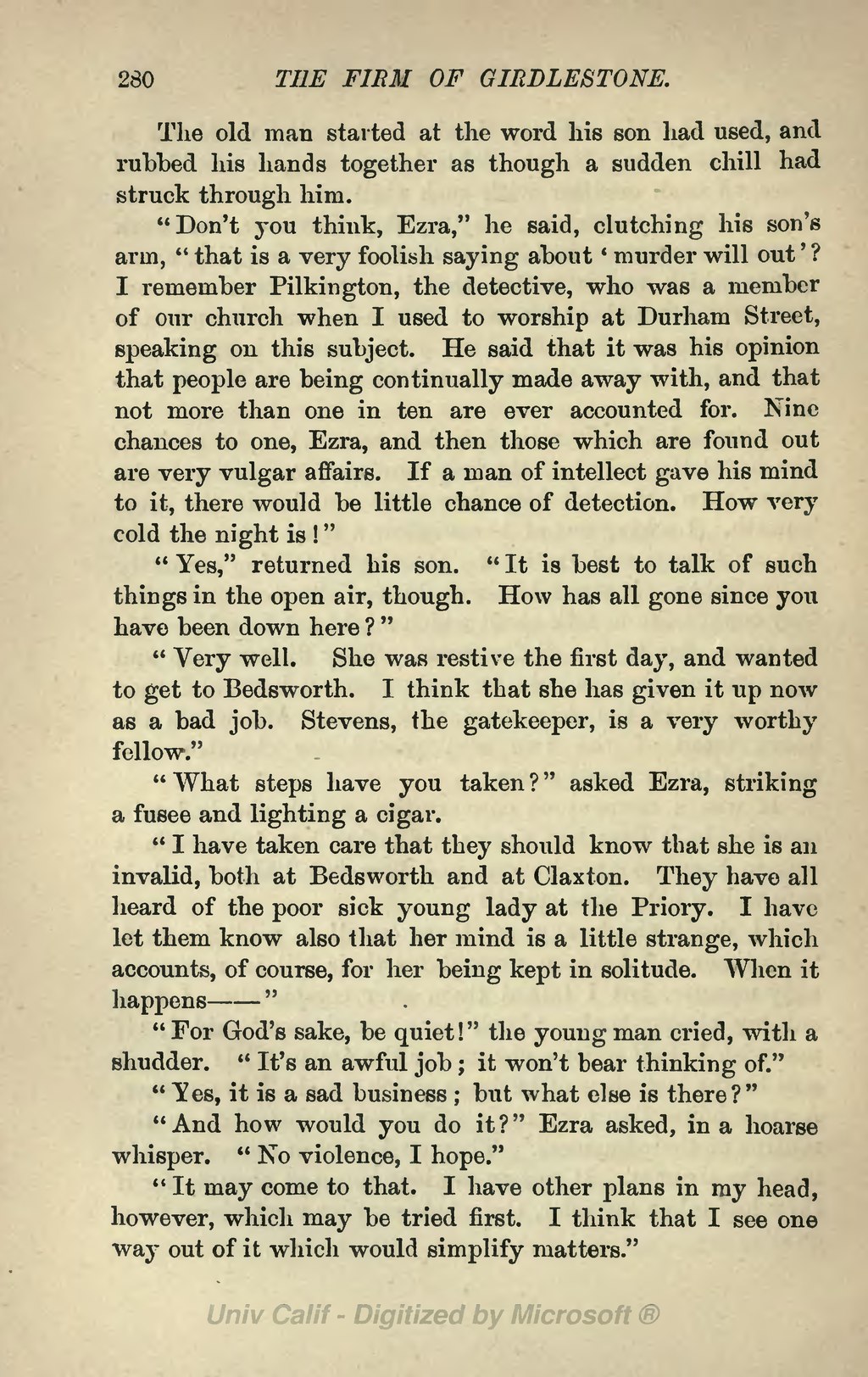The old man started at the word his son had used, and rubbed his hands together as though a sudden chill had struck through him.
"Don't you think, Ezra," he said, clutching his son's arm, "that is a very foolish saying about 'murder will out'? I remember Pilkington, the detective, who was a member of our church when I used to worship at Durham Street, speaking on this subject. He said that it was his opinion that people are being continually made away with, and that not more than one in ten are ever accounted for. Nine chances to one, Ezra, and then those which are found out are very vulgar affairs. If a man of intellect gave his mind to it, there would be little chance of detection. How very cold the night is!"
"Yes," returned his son. "It is best to talk of such things in the open air, though. How has all gone since you have been down here?"
"Very well. She was restive the first day, and wanted to get to Bedsworth. I think that she has given it up now as a bad job. Stevens, the gatekeeper, is a very worthy fellow."
"What steps have you taken?" asked Ezra, striking a fusee and lighting a cigar.
"I have taken care that they should know that she is an invalid, both at Bedsworth and at Claxton. They have all heard of the poor sick young lady at the Priory. I have let them know also that her mind is a little strange, which accounts, of course, for her being kept in solitude. When it happens"
"For God's sake, be quiet!" the young man cried, with a shudder. "It's an awful job; it won't bear thinking of."
"Yes, it is a sad business; but what else is there?"
"And how would you do it?" Ezra asked, in a hoarse whisper. "No violence, I hope."
"It may come to that. I have other plans in my head, however, which may be tried first. I think that I see one way out of it which would simplify matters."
